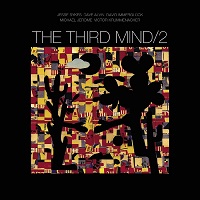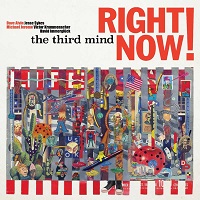Dave Alvin, Victor Krummenacher (Cracker, Camper Van Beethoven), Michael Jerome (Toadies, Better Than Ezra) und David Immerglück (Counting Crows, Camper Van Beethoven) bilden den harten Kern dieser Formation. Erfahrene Musiker haben sich zusammengetan, um eine Reise in die Zeit des Psychedelic Folk/Rock Zeit des späten 60er und frühen 70er Jahre zu unternehmen. Sie spielen ihre eigenen Varianten von Songs, die durch Alice Coltrane, 13th Floor Elevators, Fred Neil und andere bekannt wurden, sowie einen Original Song, »Claudia Cardinale«.
As a musician who has passionately advocated for American roots music since the Blasters released their first album in 1980, Dave Alvin is widely regarded as a traditionalist, which is not as accurate as it would seem at first glance. Alvin grew up on free jazz, psychedelia, and hard rock along with the blues, rockabilly, country, and jump jazz sounds that inform his best-known work, and his project the Third Mind is a step outside his usual boundaries that lets him explore ideas he hasn't approached in the past. Alvin was inspired by reading a book on Miles Davis that outlined his methods for composing and recording several of his major fusion albums of the '70s: Miles would call out a key, set a tempo, and he and his band would improvise at length. After the fact, he and his producer would edit the long jams into a more practical shape. Alvin assembled a set of versatile players to try something similar -- David ImmerglĂĽck on guitar and keyboards, Victor Krummenacher on bass, Michael Jerome on drums, and Jesse Sykes on guitar and vocals -- though for most of the Third Mind's debut album, they gave themselves a safety net that Miles didn't. Except for one original piece, "Claudia Cardinale," Alvin and his accompanists play covers, which gives them some sort of road map to follow, but otherwise the band dove into these songs without prior rehearsal, letting the feel of the moment dictate the arrangements. If anyone was expecting that this would be the album where Alvin would remake himself into an avant-garde noise artist, they get shut down pretty quickly; however, while it's not hard to recognize the rudiments of his guitar style in these jams, he does take the opportunity to stretch out and explore the space around him in a way that's fresh and challenging. There's a folky simplicity in these versions of Fred Neil's "Dolphins" and Tim Rose's "Morning Dew," but they don't sound simple or unimaginative, and when the group dig deeper into Alice Coltrane's "Journey in Satchidananda" and the Paul Butterfield Blues Band's "East/West," the communication between the players is smart and exciting. (Whether you actually need three different versions of "East/West," the shortest of which is 14 minutes, is an open question, but each one here is honestly engaging.) Alvin's roots in the blues certainly play a big role in The Third Mind, but so does hard rock, psychedelia, jazz, and improvisational music, and this context -- essentially a jam band without audibly hippie-like tendencies -- shows that his willingness to take a risk pays off handsomely.
(by Mark Deming, All Music Guide)

 Plattentipp
Plattentipp 









